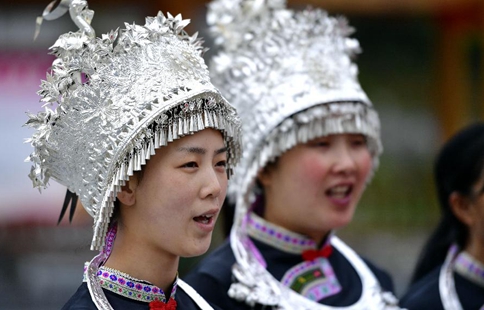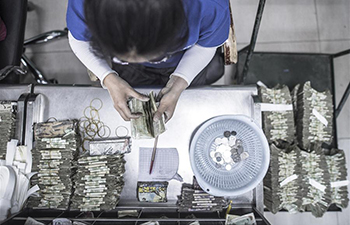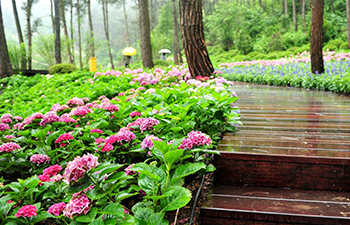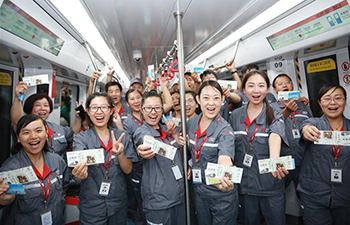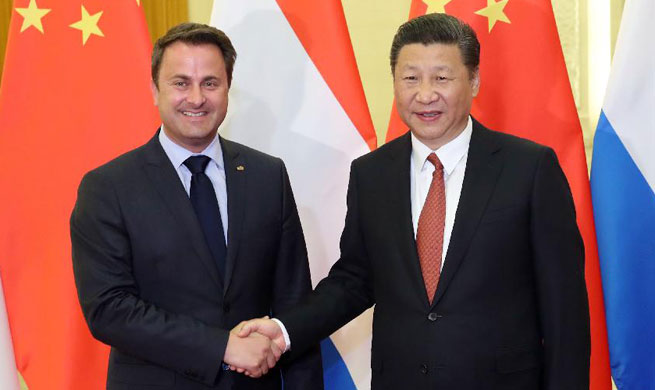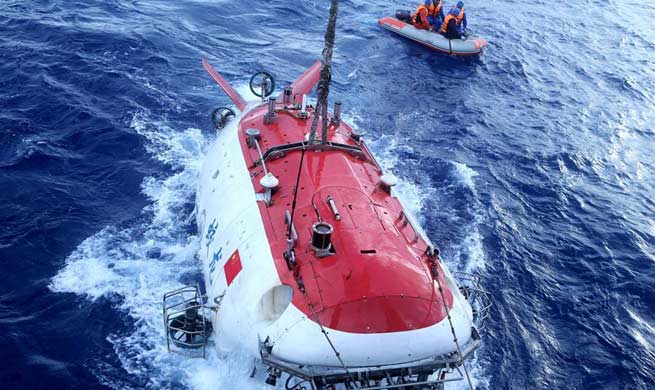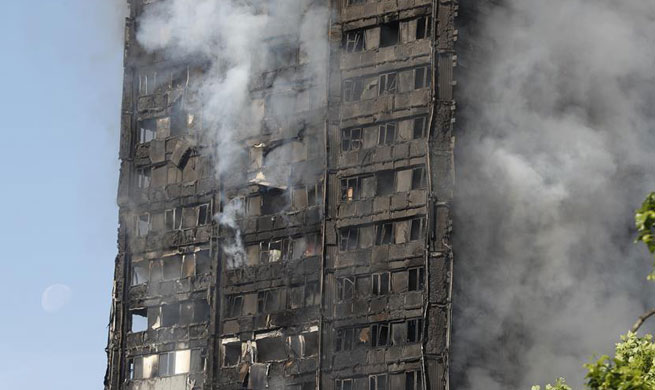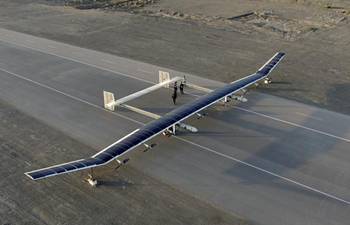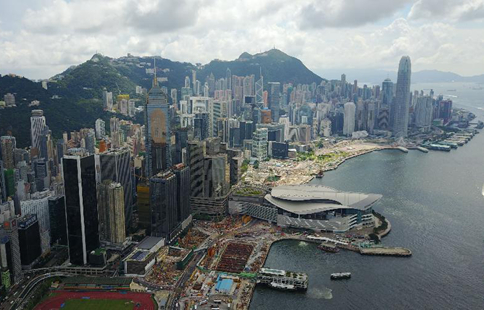BERLIN, June 14 (Xinhua) -- Munich Mayor Dieter Reiter (SPD) told German newspaper Sueddeutsche Zeitung on Wednesday that he saw no alternative to a ban on diesel vehicles in the face of concerning air pollution levels recorded in the Bavarian capital.
Reiter said that he did not see how the municipal government could carry on without such measures.
The mayor's comments follow recent findings that large swaths of Munich are in breach of air pollution limits for toxic particulate matter and nitrogen oxides (NO2) imposed in the European Union (EU).
Reiter described the results, which were measured widely around the city, rather than being confined to areas with heavy traffic, as "shocking" and "unexpected."
For NO2, the European Union mandates that measurements must not exceed an annual average of 40 micrograms per cubic meter. New measurements showed readings as high as 60 micrograms per cubic meter and above in parts of Munich.
In densely-populated areas, the bulk of poisonous NO2 is produced by cars. Some 295,000 out of 720,000 vehicles registered in Munich are powered by diesel motors.
While Reiter stressed the need for the city to react, a lack of clarity remains as to whether the municipal government can legally impose a ban.
The mayor's current proposals would exclude some vehicles, such as those used for public transportation and emergency services.
After Stuttgart and Hamburg, Munich is the third German city to consider disallowing diesel vehicles.
Authorities in Stuttgart had also tabled proposals to use automated technology to scan registration plates as a means of identifying ineligible vehicles, but denied their intention to pursue these plans shortly thereafter.
Diesel fuels have suffered a heavy blow to their reputation due to their role in releasing NO2 into the air and the revelation of the related attempts by several car manufacturers to manipulate emission tests to comply with legal thresholds.
The market share of diesel vehicles in Germany fell to 40.4 percent in May, from 46.3 percent in the previous year.
The largest German car manufacturer, Volkswagen, has stood in the focus of global investigations after admitting the manipulation of emissions tests for millions of its diesel vehicles in 2015.
Nevertheless, Munich's plans for a diesel ban immediately provoked a fierce backlash from automotive industry representatives.
Car manufacturers continue to rely on the production of diesel-powered vehicles as they seek to remain compliant with stricter EU limits on carbon dioxide (CO2) emissions.
Rising levels of CO2 in the earth's atmosphere released by human activity have been identified by scientists as a crucial driver of climate change. Diesel is viewed by the automotive industry as a more CO2 efficient fuel than gasoline.
Critics of Reiter's plan further noted that there is no reliable substitute for diesel motors in buses and trucks yet, highlighting the slow conversion to electric vehicles.
For Reiter, the planned ban is only part of broader reforms required in urban mobility. He cited a need to establish the primacy of public transportation, as well as to persuade citizens that not every individual has to own a private car.
The Green Party joined the debate by blaming the policies of Federal Minister of Transport Alexander Dobrindt (CSU) for potential diesel bans in Munich and other German cities.
"Instead of giving cities intelligent and pragmatic means to control traffic flows, Dobrindt continues to stand cover for car manufacturers throughout the scandal of their emissions test manipulations," Anton Hofreiter, the head of the Green parliamentary faction, said on Wednesday.
Hofreiter showed understanding for Reiter's plans, stating that Munich had to improve air quality to protect the health of its inhabitants.
The Green Party is in favor of introducing a "blue placard" for cars with relatively low emissions which would grant them access to heavily congested inner cities.




